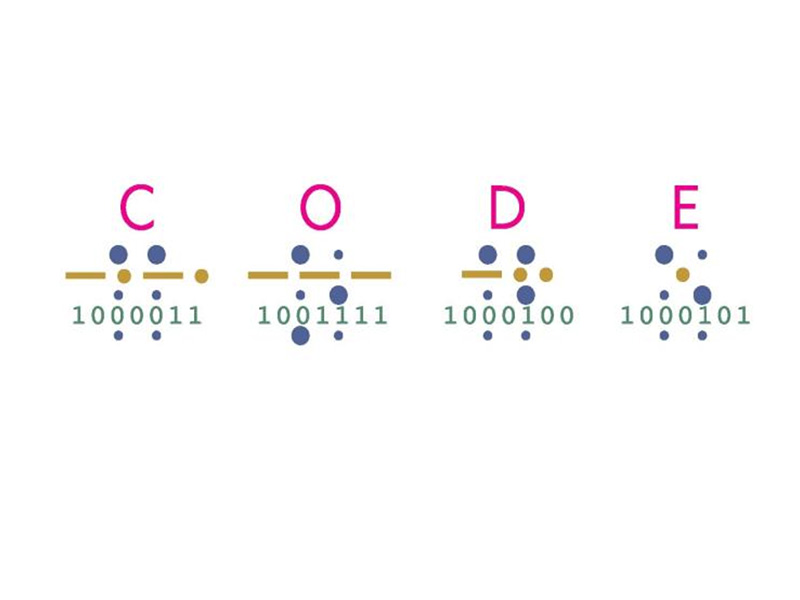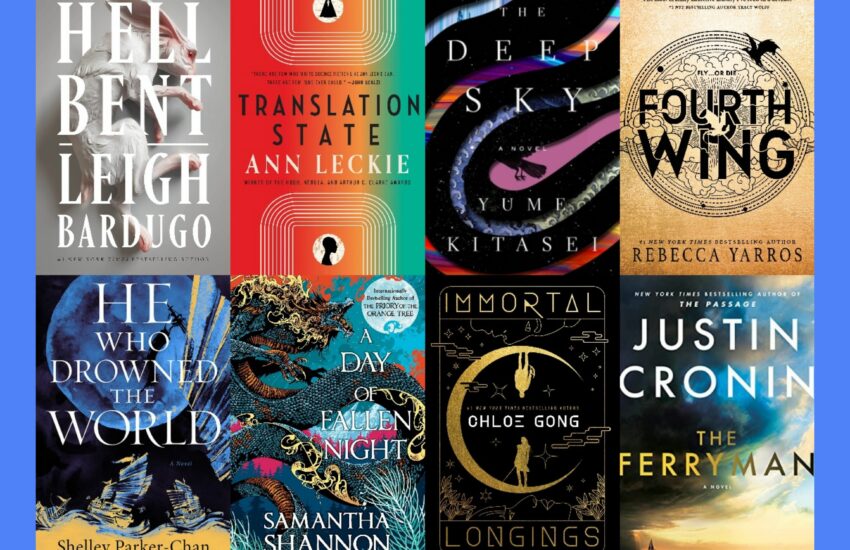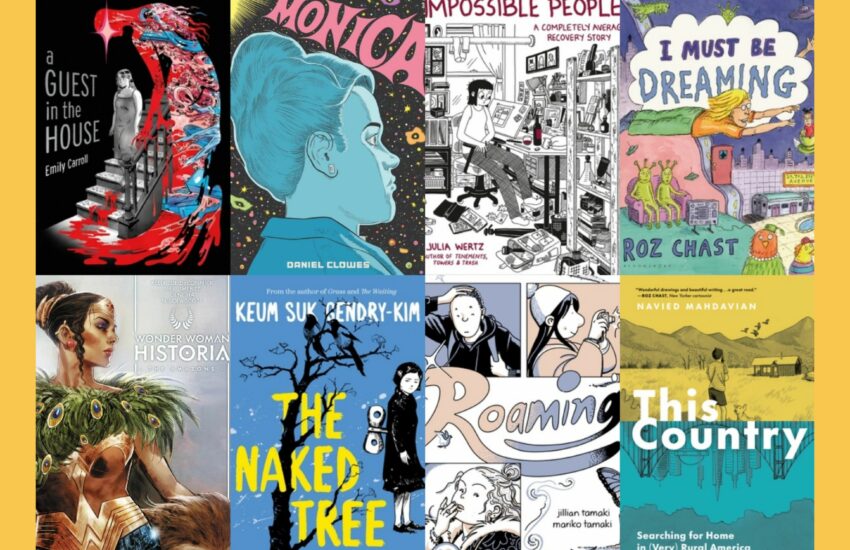The Best Computer Science Books
“What are the best books about Computer Science?” We looked at 166 of the top Computer Science books, aggregating and ranking them so we could answer that very question!
The top 25 titles, all appearing on 2 or more “Best Computer Science” book lists, are ranked below by how many lists they appear on. The remaining 125+ titles, as well as the lists we used are in alphabetical order at the bottom of the page.
Happy Scrolling!
Top 25 Computer Science Books
25 .) Algorithms to Live By: The Computer Science of Human Decisions
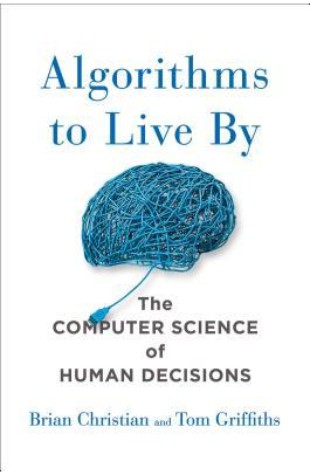 Lists It Appears On:
Lists It Appears On:
- Computer Science Degree Hub
- UG Tech Mag
A fascinating exploration of how insights from computer algorithms can be applied to our everyday lives, helping to solve common decision-making problems and illuminate the workings of the human mind All our lives are constrained by limited space and time, limits that give rise to a particular set of problems. What should we do, or leave undone, in a day or a lifetime? How much messiness should we accept? What balance of new activities and familiar favorites is the most fulfilling? These may seem like uniquely human quandaries, but they are not: computers, too, face the same constraints, so computer scientists have been grappling with their version of such issues for decades. And the solutions they’ve found have much to teach us. In a dazzlingly interdisciplinary work, acclaimed author Brian Christian and cognitive scientist Tom Griffiths show how the algorithms used by computers can also untangle very human questions. They explain how to have better hunches and when to leave things to chance, how to deal with overwhelming choices and how best to connect with others. From finding a spouse to finding a parking spot, from organizing one’s inbox to understanding the workings of memory, Algorithms to Live By transforms the wisdom of computer science into strategies for human living.
24 .) Code Complete by Steve McConnell
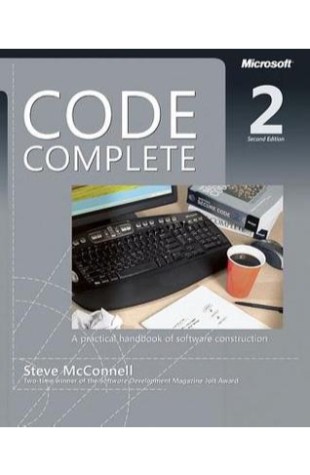 Lists It Appears On:
Lists It Appears On:
- Five Books
- Sly Code
Widely considered one of the best practical guides to programming, Steve McConnell’s original CODE COMPLETE has been helping developers write better software for more than a decade. Now this classic book has been fully updated and revised with leading-edge practices–and hundreds of new code samples–illustrating the art and science of software construction. Capturing the body of knowledge available from research, academia, and everyday commercial practice, McConnell synthesizes the most effective techniques and must-know principles into clear, pragmatic guidance. No matter what your experience level, development environment, or project size, this book will inform and stimulate your thinking–and help you build the highest quality code. Discover the timeless techniques and strategies that help you: Design for minimum complexity and maximum creativity Reap the benefits of collaborative development Apply defensive programming techniques to reduce and flush out errors Exploit opportunities to refactor–or evolve–code, and do it safely Use construction practices that are right-weight for your project Debug problems quickly and effectively Resolve critical construction issues early and correctly Build quality into the beginning, middle, and end of your project
23 .) Computer Architecture: A Quantitative Approach
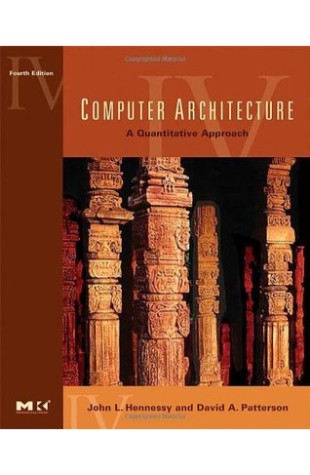 Lists It Appears On:
Lists It Appears On:
- List Muse
- UG Tech Mag
The era of seemingly unlimited growth in processor performance is over: single chip architectures can no longer overcome the performance limitations imposed by the power they consume and the heat they generate. Today, Intel and other semiconductor firms are abandoning the single fast processor model in favor of multi-core microprocessors–chips that combine two or more processors in a single package. In the fourth edition of “Computer Architecture,” the authors focus on this historic shift, increasing their coverage of multiprocessors and exploring the most effective ways of achieving parallelism as the key to unlocking the power of multiple processor architectures. Additionally, the new edition has expanded and updated coverage of design topics beyond processor performance, including power, reliability, availability, and dependability.
22 .) Computer Networks by Andrew S. Tanenbaum
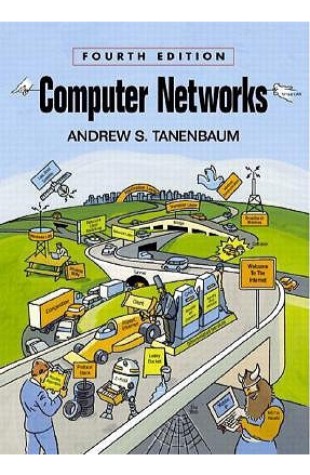 Lists It Appears On:
Lists It Appears On:
- List Muse
- Medium
For courses in computer networking or introductions to networking at both the undergraduate and graduate level in computer science, engineering, CIS, MIS, and business departments. In this revision, the author takes a structured approach to explaining how networks function.
21 .) Cracking the Coding Interview: 189 Programing Questions and Solutions
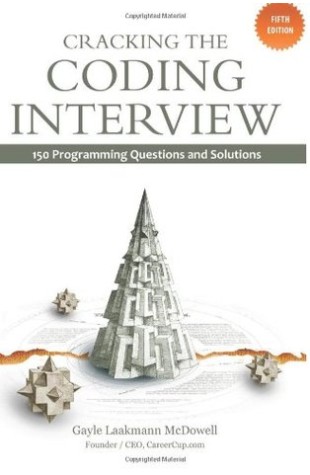 Lists It Appears On:
Lists It Appears On:
- Amazon
- Sly Code
Now in the 5th edition, Cracking the Coding Interview gives you the interview preparation you need to get the top software developer jobs. This is a deeply technical book and focuses on the software engineering skills to ace your interview. The book is over 500 pages and includes 150 programming interview questions and answers, as well as other advice. The full list of topics are as follows: The Interview Process This section offers an overview on questions are selected and how you will be evaluated. What happens when you get a question wrong? When should you start preparing, and how? What language should you use? All these questions and more are answered. Behind the Scenes Learn what happens behind the scenes during your interview, how decisions really get made, who you interview with, and what they ask you. Companies covered include Google, Amazon, Yahoo, Microsoft, Apple and Facebook.
20 .) Data Structures and Algorithms Made Easy: Data Structures and Algorithmic Puzzles
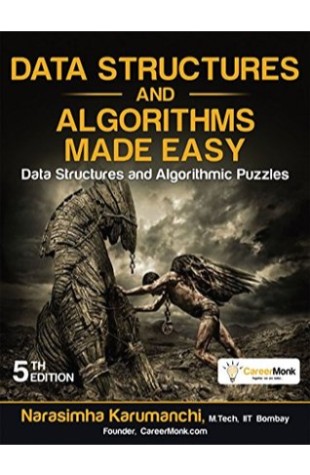 Lists It Appears On:
Lists It Appears On:
- Amazon
- List Muse
Peeling Data Structures and Algorithms: Table of Contents: goo.gl/JFMgiU Sample Chapter: goo.gl/n2Hk4i Found Issue? goo.gl/forms/4Gt72YO81I Videos: goo.gl/BcHq74 “Data Structures And Algorithms Made Easy: Data Structures and Algorithmic Puzzles” is a book that offers solutions to complex data structures and algorithms. There are multiple solutions for each problem and the book is coded in C/C++, it comes handy as an interview and exam guide for computer scientists. A handy guide of sorts for any computer science professional, Data Structures And Algorithms Made Easy: Data Structures and Algorithmic Puzzles is a solution bank for various complex problems related to data structures and algorithms. It can be used as a reference manual by those readers in the computer science industry. This book serves as guide to prepare for interviews, exams, and campus work. In short, this book offers solutions to various complex data structures and algorithmic problems.
19 .) Fundamentals of Database System by Shamkant B. Navathe
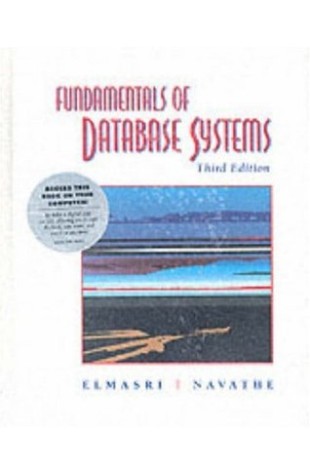 Lists It Appears On:
Lists It Appears On:
- List Muse
- Medium
Fundamentals of Database Systems combines clear explanations of theory and design, broad coverage of models and real systems, and excellent examples with up-to-date introductions to modern database technologies. Now in its third edition, this book has been revised and updated to reflect the latest trends in technological and application development.
18 .) Modern Operating Systems by Andrew S.Tanenbaum
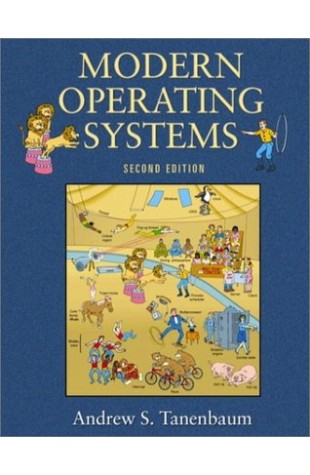 Lists It Appears On:
Lists It Appears On:
- List Muse
- Sly Code
For software development professionals and computer science students, Modern Operating Systems gives a solid conceptual overview of operating system design, including detailed case studies of Unix/Linux and Windows 2000. What makes an operating system modern? According to author Andrew Tanenbaum, it is the awareness of high-demand computer applications–primarily in the areas of multimedia, parallel and distributed computing, and security. The development of faster and more advanced hardware has driven progress in software, including enhancements to the operating system. It is one thing to run an old operating system on current hardware, and another to effectively leverage current hardware to best serve modern software applications. If you don’t believe it, install Windows 3.0 on a modern PC and try surfing the Internet or burning a CD. Readers familiar with Tanenbaum’s previous text, Operating Systems, know the author is a great proponent of simple design and hands-on experimentation. His earlier book came bundled with the source code for an operating system called Minux, a simple variant of Unix and the platform used by Linus Torvalds to develop Linux. Although this book does not come with any source code, he illustrates many of his points with code fragments (C, usually with Unix system calls). The first half of Modern Operating Systems focuses on traditional operating systems concepts: processes, deadlocks, memory management, I/O, and file systems. There is nothing groundbreaking in these early chapters, but all topics are well covered, each including sections on current research and a set of student problems. It is enlightening to read Tanenbaum’s explanations of the design decisions made by past operating systems gurus, including his view that additional research on the problem of deadlocks is impractical except for “keeping otherwise unemployed graph theorists off the streets.”
17 .) Operating Systems by Andrew S. Tanenbaum
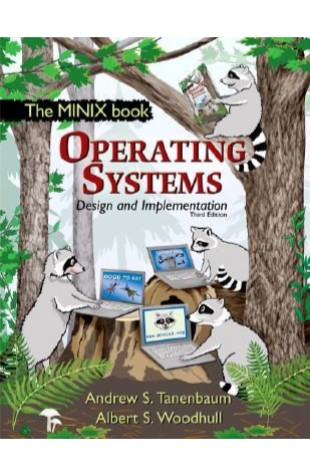 Lists It Appears On:
Lists It Appears On:
- List Muse
- Medium
Operating Systems Design and Implementation, 3e , is ideal for introductory courses on computer operating systems. Written by the creator of Minux, professional programmers will now have the most up-to-date tutorial and reference available today. Revised to address the latest version of MINIX (MINIX 3), this streamlined, simplified new edition remains the only operating systems text to first explain relevant principles, then demonstrate their applications using a Unix-like operating system as a detailed example. It has been especially designed for high reliability, for use in embedded systems, and for ease of teaching.
16 .) Programming Pearls
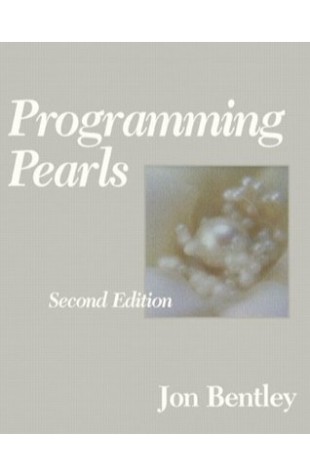 Lists It Appears On:
Lists It Appears On:
- Catonmat
- List Muse
The first edition of Programming Pearls was one of the most influential books I read early in my career, and many of the insights I first encountered in that book stayed with me long after I read it. Jon has done a wonderful job of updating the material. I am very impressed at how fresh the new examples seem. – Steve McConnell When programmers list their favorite books, Jon Bentley’s collection of programming pearls is commonly included among the classics. Just as natural pearls grow from grains of sand that irritate oysters, programming pearls have grown from real problems that have irritated real programmers. With origins beyond solid engineering, in the realm of insight and creativity, Bentley’s pearls offer unique and clever solutions to those nagging problems. Illustrated by programs designed as much for fun as for instruction, the book is filled with lucid and witty descriptions of practical programming techniques and fundamental design principles. It is not at all surprising that Programming Pearls has been so highly valued by programmers at every level of experience.
15 .) Python Programming by John M. Zelle
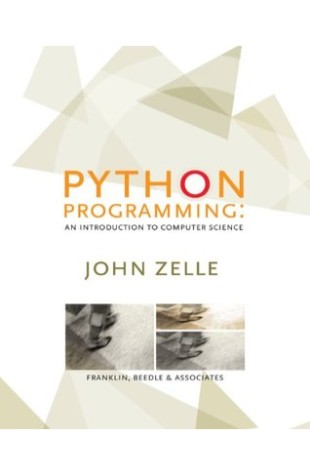 Lists It Appears On:
Lists It Appears On:
- Coders Eye
- Lib Guides
his book is designed to be used as the primary textbook in a college-level first course in computing. It takes a fairly traditional approach, emphasizing problem solving, design, and programming as the core skills of computer science. However, these ideas are illustrated using a non-traditional language, namely Python. Although I use Python as the language, teaching Python is not the main point of this book. Rather, Python is used to illustrate fundamental principles of design and programming that apply in any language or computing environment. In some places, I have purposely avoided certain Python features and idioms that are not generally found in other languages.
14 .) Structure and Interpretation of Computer Programs
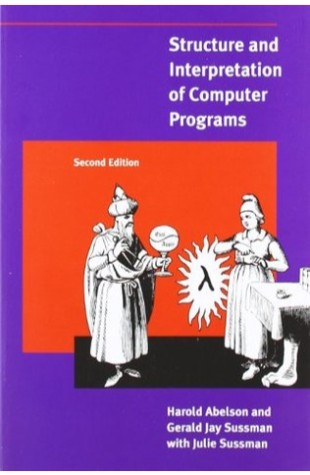 Lists It Appears On:
Lists It Appears On:
- List Muse
- UG Tech Mag
Structure and Interpretation of Computer Programs has had a dramatic impact on computer science curricula over the past decade. This long-awaited revision contains changes throughout the text. There are new implementations of most of the major programming systems in the book, including the interpreters and compilers, and the authors have incorporated many small changes that reflect their experience teaching the course at MIT since the first edition was published. A new theme has been introduced that emphasizes the central role played by different approaches to dealing with time in computational models: objects with state, concurrent programming, functional programming and lazy evaluation, and nondeterministic programming.
13 .) The Art of Computer Programming by Donald E. Knuth
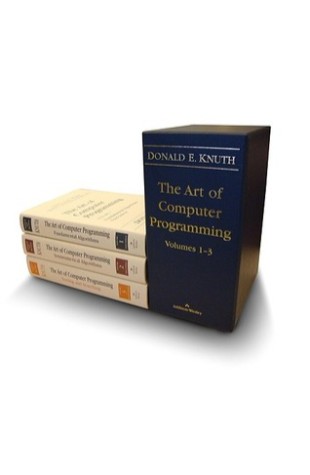 Lists It Appears On:
Lists It Appears On:
- Best Of Reviews
- List Muse
Knuth’s classic work has been widely acclaimed as one of the most influential works in the field of computer science. For the first time, these books are available as a boxed, three-volume set. The handsome slipcase makes this set an ideal gift for the recent computer science graduate or professional programmer. Offering a description of classical computer science, this multi-volume work is a useful resource in programming theory and practice for students, researchers, and practitioners alike. For programmers, it offers cookbook solutions to their day-to-day problems.
12 .) The C Programming Language by Dennis Ritchie
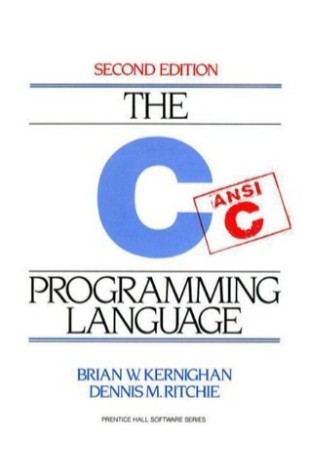 Lists It Appears On:
Lists It Appears On:
- Medium
- UG Tech Mag
This book is meant to help the reader learn how to program in C. It is the definitive reference guide, now in a second edition. Although the first edition was written in 1978, it continues to be a worldwide best-seller. This second edition brings the classic original up to date to include the ANSI standard. From the Preface: We have tried to retain the brevity of the first edition. C is not a big language, and it is not well served by a big book. We have improved the exposition of critical features, such as pointers, that are central to C programming. We have refined the original examples, and have added new examples in several chapters. For instance, the treatment of complicated declarations is augmented by programs that convert declarations into words and vice versa. As before, all examples have been tested directly from the text, which is in machine-readable form. As we said in the first preface to the first edition, C “wears well as one’s experience with it grows.” With a decade more experience, we still feel that way.
11 .) The C++ Programming Language
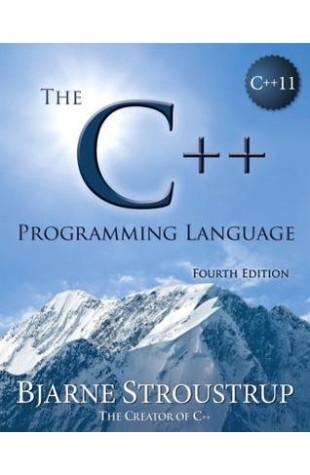 Lists It Appears On:
Lists It Appears On:
- Coders Eye
- List Muse
The new C++11 standard allows programmers to express ideas more clearly, simply, and directly, and to write faster, more efficient code. Bjarne Stroustrup, the designer and original implementer of C++, has reorganized, extended, and completely rewritten his definitive reference and tutorial for programmers who want to use C++ most effectively.
10 .) The Little Schemer
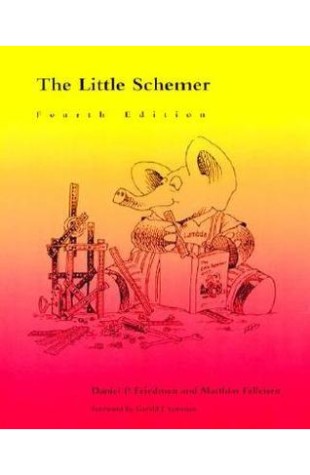 Lists It Appears On:
Lists It Appears On:
- Catonmat
- List Muse
The notion that “thinking about computing is one of the most exciting things the human mind can do” sets both The Little Schemer (formerly known as The Little LISPer) and its new companion volume, The Seasoned Schemer, apart from other books on LISP. The authors’ enthusiasm for their subject is compelling as they present abstract concepts in a humorous and easy-to-grasp fashion. Together, these books will open new doors of thought to anyone who wants to find out what computing is really about. The Little Schemer introduces computing as an extension of arithmetic and algebra; things that everyone studies in grade school and high school. It introduces programs as recursive functions and briefly discusses the limits of what computers can do. The authors use the programming language Scheme, and interesting foods to illustrate these abstract ideas. The Seasoned Schemer informs the reader about additional dimensions of computing: functions as values, change of state, and exceptional cases. The Little LISPer has been a popular introduction to LISP for many years. It had appeared in French and Japanese. The Little Schemer and The Seasoned Schemer are worthy successors and will prove equally popular as textbooks for Scheme courses as well as companion texts for any complete introductory course in Computer Science.
9 .) The New Turing Omnibus
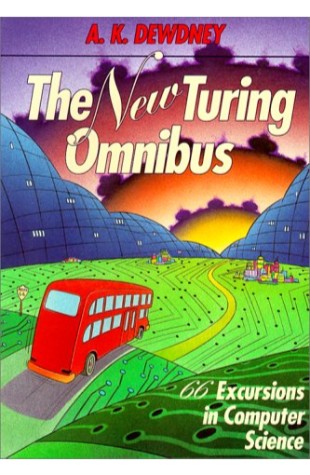 Lists It Appears On:
Lists It Appears On:
- Catonmat
- List Muse
No other volume provides as broad, as thorough, or as accessible an introduction to the realm of computers as A. K. Dewdney’s The Turing Omnibus. Updated and expanded, The Turing Omnibus offers 66 concise, brilliantly written articles on the major points of interest in computer science theory, technology, and applications. New for this tour: updated information on algorithms, detecting primes, noncomputable functions, and self-replicating computers–plus completely new sections on the Mandelbrot set, genetic algorithms, the Newton-Raphson Method, neural networks that learn, DOS systems for personal computers, and computer viruses.
8 .) Types and Programming Languages by Benjamin C. Pierce
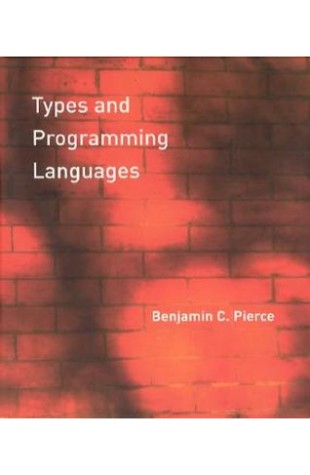 Lists It Appears On:
Lists It Appears On:
- Five Books
- UG Tech Mag
A comprehensive introduction to type systems and programming languages. A type system is a syntactic method for automatically checking the absence of certain erroneous behaviors by classifying program phrases according to the kinds of values they compute. The study of type systems–and of programming languages from a type-theoretic perspective–has important applications in software engineering, language design, high-performance compilers, and security. This text provides a comprehensive introduction both to type systems in computer science and to the basic theory of programming languages. The approach is pragmatic and operational; each new concept is motivated by programming examples and the more theoretical sections are driven by the needs of implementations. Each chapter is accompanied by numerous exercises and solutions, as well as a running implementation, available via the Web. Dependencies between chapters are explicitly identified, allowing readers to choose a variety of paths through the material. The core topics include the untyped lambda-calculus, simple type systems, type reconstruction, universal and existential polymorphism, subtyping, bounded quantification, recursive types, kinds, and type operators. Extended case studies develop a variety of approaches to modeling the features of object-oriented languages.
7 .) C Programming Language by Brian W.Kernighan and Dennis Ritchie
 Lists It Appears On:
Lists It Appears On:
- Coders Eye
- List Muse
- Sly Code
This book is meant to help the reader learn how to program in C. It is the definitive reference guide, now in a second edition. Although the first edition was written in 1978, it continues to be a worldwide best-seller. This second edition brings the classic original up to date to include the ANSI standard.
6 .) The Pragmatic Programmer: From Journeyman to Master by Andrew Hunt and Dave Thomas
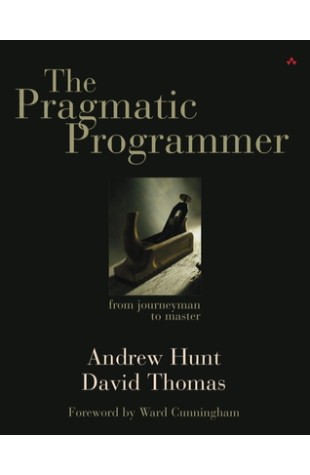 Lists It Appears On:
Lists It Appears On:
- Best Masters Degrees
- Coders Eye
- List Muse
Ward Cunningham Straight from the programming trenches, The Pragmatic Programmer cuts through the increasing specialization and technicalities of modern software development to examine the core process–taking a requirement and producing working, maintainable code that delights its users. It covers topics ranging from personal responsibility and career development to architectural techniques for keeping your code flexible and easy to adapt and reuse.
5 .) The Soul of a New Machine by Tracy Kidder
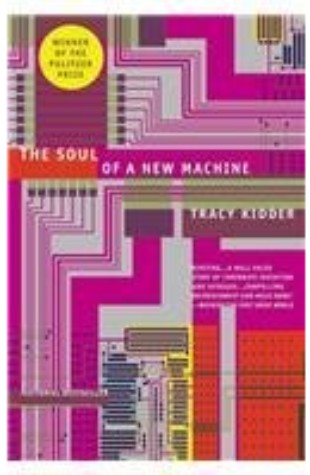 Lists It Appears On:
Lists It Appears On:
- Best Of Reviews
- Computer Science Degree Hub
- List Muse
The computer revolution brought with it new methods of getting work done—just look at today’s news for reports of hard-driven, highly-motivated young software and online commerce developers who sacrifice evenings and weekends to meet impossible deadlines. Tracy Kidder got a preview of this world in the late 1970s when he observed the engineers of Data General design and build a new 32-bit minicomputer in just one year. His thoughtful, prescient book, The Soul of a New Machine, tells stories of 35-year-old “veteran” engineers hiring recent college graduates and encouraging them to work harder and faster on complex and difficult projects, exploiting the youngsters’ ignorance of normal scheduling processes while engendering a new kind of work ethic. These days, we are used to the “total commitment” philosophy of managing technical creation, but Kidder was surprised and even a little alarmed at the obsessions and compulsions he found. From in-house political struggles to workers being permitted to tease management to marathon 24-hour work sessions,
4 .) Clean Code: A Handbook of Agile Software Craftsmanship by Robert C. Martin
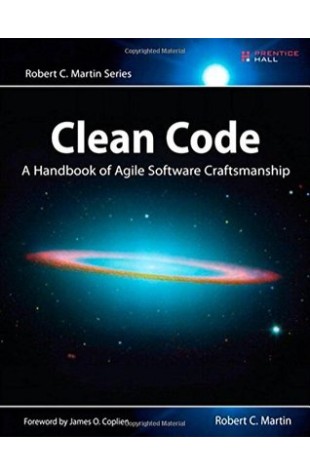 Lists It Appears On:
Lists It Appears On:
- Best Masters Degrees
- Five Books
- List Muse
- UG Tech Mag
Even bad code can function. But if code isn t clean, it can bring a development organization to its knees. Every year, countless hours and significant resources are lost because of poorly written code. But it doesn t have to be that way. Noted software expert Robert C. Martin presents a revolutionary paradigm with Clean Code: A Handbook of Agile Software Craftsmanship . Martin has teamed up with his colleagues from Object Mentor to distill their best agile practice of cleaning code on the fly into a book that will instill within you the values of a software craftsman and make you a better programmer but only if you work at it. What kind of work will you be doing? You ll be reading code lots of code. And you will be challenged to think about what s right about that code, and what s wrong with it. More importantly, you will be challenged to reassess your professional values and your commitment to your craft. Clean Code is divided into three parts. The first describes the principles, patterns, and practices of writing clean code. The second part consists of several case studies of increasing complexity. Each case study is an exercise in cleaning up code of transforming a code base that has some problems into one that is sound and efficient. The third part is the payoff: a single chapter containing a list of heuristics and smells gathered while creating the case studies. The result is a knowledge base that describes the way we think when we write, read, and clean code.
3 .) Code: The Hidden Language of Computer Hardware and Software
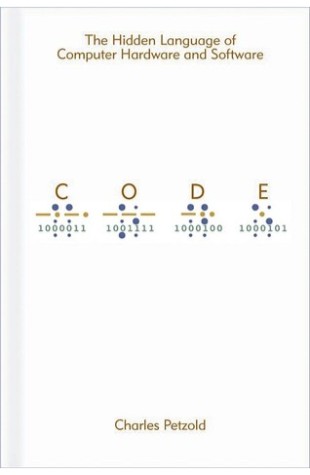 Lists It Appears On:
Lists It Appears On:
- Computer Science Degree Hub
- Five Books
- List Muse
- UG Tech Mag
What do flashlights, the British invasion, black cats, and seesaws have to do with computers? In CODE, they show us the ingenious ways we manipulate language and invent new means of communicating with each other. And through CODE, we see how this ingenuity and our very human compulsion to communicate have driven the technological innovations of the past two centuries. Using everyday objects and familiar language systems such as Braille and Morse code, author Charles Petzold weaves an illuminating narrative for anyone who’s ever wondered about the secret inner life of computers and other smart machines. It’s a cleverly illustrated and eminently comprehensible story—and along the way, you’ll discover you’ve gained a real context for understanding today’s world of PCs, digital media, and the Internet. No matter what your level of technical savvy, CODE will charm you—and perhaps even awaken the technophile within.
2 .) Hackers: Heroes of the Computer Revolution by Steven Levy
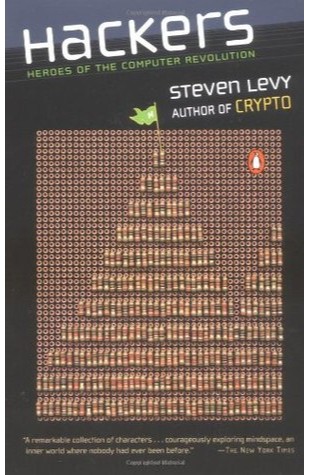 Lists It Appears On:
Lists It Appears On:
- Best Of Reviews
- Computer Science Degree Hub
- List Muse
- UG Tech Mag
A mere fifteen years ago, computer nerds were seen as marginal weirdos, outsiders whose world would never resonate with the mainstream. That was before one pioneering work documented the underground computer revolution that was about to change our world forever. With groundbreaking profiles of Bill Gates, Steve Wozniak, MIT’s Tech Model Railroad Club, and more, Steven Levy’s Hackers brilliantly captured a seminal moment when the risk-takers and explorers were poised to conquer twentieth-century America’s last great frontier. And in the Internet age, the hacker ethic-first espoused here-is alive and well.
1 .) Introduction to Algorithms by Thomas H. Cormen
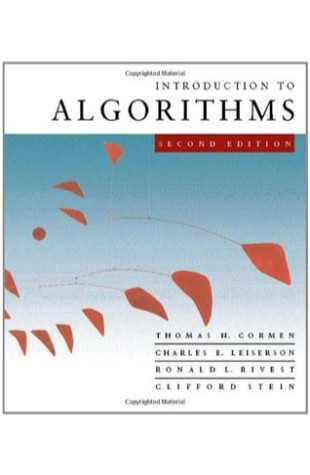 Lists It Appears On:
Lists It Appears On:
- Amazon
- List Muse
- Medium
- UG Tech Mag
This title covers a broad range of algorithms in depth, yet makes their design and analysis accessible to all levels of readers. Each chapter is relatively self-contained and can be used as a unit of study. The algorithms are described in English and in a pseudocode designed to be readable by anyone who has done a little programming. The explanations have been kept elementary without sacrificing depth of coverage or mathematical rigor.
The 125+ Additional Best Computer Science Books
| # | Book | Author | Lists |
| (Titles Appear On 1 List Each) | |||
| 26 | 100 Things Every Designer Needs to Know about People | Susan Weinschenk | Lib Guides |
| 27 | A First Course in Database Systems | List Muse | |
| 28 | A Smarter Way to Learn JavaScript | Coders Eye | |
| 29 | About Face 3: The Essentials of Interaction Design | List Muse | |
| 30 | Absolute Beginner’s Guide to C | Coders Eye | |
| 31 | Accidental Empires: How the Boys of Silicon Valley Make Their Millions, Battle Foreign Competition, and Still Can’t Get a Date | Robert X. Cringely | Best Of Reviews |
| 32 | Advanced Data Structures | List Muse | |
| 33 | Advanced Programming in the UNIX Environment | List Muse | |
| 34 | Algorithm Design | List Muse | |
| 35 | Algorithms | Robert Sedgewick & Kevin Wayne | Five Books |
| 36 | Architecture of Computer Hardware and System Software | List Muse | |
| 37 | Artificial Intelligence: A Modern Approach | List Muse | |
| 38 | Automata Theory, Language & Computation | Jeffrey D Ullman | Medium |
| 39 | AWS Certified Solutions Architect Official Study Guide (India reprint edition): Associate Exam | Amazon | |
| 40 | Back-End Development | Coders Eye | |
| 41 | C++ Programming in Easy Steps | Mike McGrath | Lib Guides |
| 42 | CCNA Wireless 640-722 | David Hucaby | Lib Guides |
| 43 | Coders at Work | List Muse | |
| 44 | Compilers: Principles, Techniques, and Tools | List Muse | |
| 45 | Computability: An Introduction to Recursive Function Theory | List Muse | |
| 46 | Computer Architecture & Digital Design | M. Morris Mano | Medium |
| 47 | Computer Graphics: Principles and Practice | List Muse | |
| 48 | Computer Lib/ Dream Machines You Can and Must Understand Computers Now | Best Of Reviews | |
| 49 | Computer Networks and Internets | List Muse | |
| 50 | Computer Organization and Design | List Muse | |
| 51 | Computer Science With C++by Sumita Arora for Class 11 | Amazon | |
| 52 | Computer Systems: A Programmer’s Perspective | List Muse | |
| 53 | Computer Vision: Algorithms and Applications | List Muse | |
| 54 | Computing: A Concise History | List Muse | |
| 55 | Concepts in Programming Languages | List Muse | |
| 56 | Concurrent Programming in Java | List Muse | |
| 57 | Core Python Programming | Amazon | |
| 58 | CSS | David McFarland | Lib Guides |
| 59 | Data Structures using C | Andrew S. Tanenbaum | Medium |
| 60 | Database Design for Mere Mortals | Michael J. Hernandez | Lib Guides |
| 61 | Database System Concepts | List Muse | |
| 62 | Deep Learning | Amazon | |
| 63 | Design Concepts in Programming Languages | List Muse | |
| 64 | Design Patterns | List Muse | |
| 65 | Digital Design and Computer Architecture | List Muse | |
| 66 | Discrete Mathematics | List Muse | |
| 67 | Distributed Systems: Principles and Paradigms | List Muse | |
| 68 | Domain-Driven Design: Tackling Complexity in the Heart of Software | List Muse | |
| 69 | DOS for Dummies | Dan Gookin | Best Of Reviews |
| 70 | Effective C++ | Scott Meyers | Lib Guides |
| 71 | Effective Java | List Muse | |
| 72 | Emotional Intelligence | Amazon | |
| 73 | Free Software, Free Society | List Muse | |
| 74 | Front-End Development | Coders Eye | |
| 75 | Game Engine Architecture | List Muse | |
| 76 | General Coding | Coders Eye | |
| 77 | Getting Real: The smarter, faster, easier way to build a successful web application | List Muse | |
| 78 | Godel, Escher, Bach | List Muse | |
| 79 | Hackers & Painters: Big Ideas from the Computer Age | List Muse | |
| 80 | Headfirst Java | Kathy Sierra and Bert Bates | Sly Code |
| 81 | Histories of Computing | List Muse | |
| 82 | How Google Works | Eric Schmidt and Jonathan Rosenberg | Best Masters Degrees |
| 83 | How to Solve It: A New Aspect of Mathematical Method | List Muse | |
| 84 | How to Think Like a Mathematician | List Muse | |
| 85 | HTML5: the Missing Manual | Matthew MacDonald | Lib Guides |
| 86 | Interaction Design: Beyond Human – Computer Interaction | List Muse | |
| 87 | Introduction to Computation and Programming Using Python | John V. Guttag | Lib Guides |
| 88 | Introduction to Computer Science Using Python | List Muse | |
| 89 | Introduction to the Theory of Computation | List Muse | |
| 90 | Invent Your Own Computer Games with Python | List Muse | |
| 91 | Java – The Complete Reference | Amazon | |
| 92 | Java Puzzlers | List Muse | |
| 93 | Java: A Beginner’s Guide | Coders Eye | |
| 94 | Javascript for Beginners | Mark Lassoff | Lib Guides |
| 95 | JavaScript: The Good Parts | List Muse | |
| 96 | Land of Lisp: Learn to Program in Lisp, One Game at a Time! | List Muse | |
| 97 | Learning PHP, MySQL, JavaScript, CSS and HTML5 | Robin Nixon | Lib Guides |
| 98 | Let Us C | Amazon | |
| 99 | Linux in a Nutshell | List Muse | |
| 100 | Linux System Programming | List Muse | |
| 101 | Masterminds of Programming: Conversations with the Creators of Major Programming Languages | List Muse | |
| 102 | Masters of Doom: How Two Guys Created an Empire and Transformed Pop Culture | List Muse | |
| 103 | Natural Language Processing with Python | List Muse | |
| 104 | No Bugs!: Delivering Error Free Code in C and C++ | List Muse | |
| 105 | Numerical Recipes: The Art of Scientific Computing | List Muse | |
| 106 | Object-Oriented Programming with C++ | Amazon | |
| 107 | Objective Computer Awareness | Amazon | |
| 108 | OpenGL Programming Guide | List Muse | |
| 109 | Operating Systems: Principles and Practice | List Muse | |
| 110 | Others: Unix, Shell Script, Java Script, Ruby are some other good scripts to learn. | Medium | |
| 111 | Pattern Recognition and Machine Learning | List Muse | |
| 112 | Peopleware: Productive Projects and Teams | List Muse | |
| 113 | Peter Norton’s Inside the PC | Best Of Reviews | |
| 114 | PHP and MySQL for Beginners | Mark Lassoff | Lib Guides |
| 115 | PL/SQL | Ivan Bayross | Medium |
| 116 | Probability and Computing: Randomized Algorithms and Probabilistic Analysis | List Muse | |
| 117 | Programming in ANSI C | Amazon | |
| 118 | Programming in Objective-C | Coders Eye | |
| 119 | Programming Massively Parallel Processors | List Muse | |
| 120 | Programming Ruby | List Muse | |
| 121 | Programming with Java | Amazon | |
| 122 | Python Cookbook | David Beazley; Brian K. Jones | Lib Guides |
| 123 | Quantum Computing since Democritus | List Muse | |
| 124 | Rebel Code: Linux And The Open Source Revolution | List Muse | |
| 125 | Refactoring: Improving the Design of Existing Code | List Muse | |
| 126 | Responsive Web Design (A Book Apart #4) | Ethan Marcotte | Best Masters Degrees |
| 127 | Revolution in The Valley: The Insanely Great Story of How the Mac Was Made | List Muse | |
| 128 | Ruby Programming Master’s Handbook: A TRUE Beginner’s Guide! | Coders Eye | |
| 129 | Secrets of the JavaScript Ninja | John Resig; Bear Bibeault | Lib Guides |
| 130 | Security Engineering: A Guide to Building Dependable Distributed Systems | List Muse | |
| 131 | Selected Papers on Computer Science | List Muse | |
| 132 | Show-Stopper!: The Breakneck Race to Create Windows NT and the Next Generation at Microsoft | List Muse | |
| 133 | Software Engineering for Internet Applications | List Muse | |
| 134 | Superintelligence: Paths, Dangers, Strategies | Computer Science Degree Hub | |
| 135 | System Analysis & Design | Alan Dennis | Medium |
| 136 | The Annotated Turing: A Guided Tour Through Alan Turing’s Historic Paper | List Muse | |
| 137 | The Art of UNIX Programming | List Muse | |
| 138 | The Cathedral & the Bazaar | List Muse | |
| 139 | The Chip: How Two Americans Invented the Microchip and Launched a Revolution | Computer Science Degree Hub | |
| 140 | The Computational Beauty of Nature: Computer Explorations of Fractals, Chaos, Complex Systems, and Adaptation | List Muse | |
| 141 | The Dark Net: Inside the Digital Underworld | Jamie Bartlett | Best Masters Degrees |
| 142 | The Design of Everyday Things | List Muse | |
| 143 | The Elements of Computing Systems: Building a Modern Computer from First Principles | List Muse | |
| 144 | The Elements of Style and The Elements of Programming Style | Catonmat | |
| 145 | The Google Story | List Muse | |
| 146 | The Inmates Are Running the Asylum | List Muse | |
| 147 | The Innovators: How a Group of Hackers, Geniuses, and Geeks Created the Digital Revolution | Computer Science Degree Hub | |
| 148 | The Joy of PHP: A Beginner’s Guide to Programming Interactive Web Applications with PHP and mySQL | Coders Eye | |
| 149 | The Little Book of Semaphores (free pdf) | Catonmat | |
| 150 | The Mythical Man-Month | List Muse | |
| 151 | The New Hacker’s Dictionary | Eric S. Raymond | Best Of Reviews |
| 152 | The Power of Habit: Why We Do What We Do, and How to Change | Amazon | |
| 153 | The Principles of Beautiful Web Design | Jason Beaird | Lib Guides |
| 154 | The Productive Programmer | List Muse | |
| 155 | The Search: How Google and Its Rivals Rewrote the Rules of Business and Transformed Our Culture | Computer Science Degree Hub | |
| 156 | The Second Machine Age: Work, Progress, and Prosperity in a Time of Brilliant Technologies | Computer Science Degree Hub | |
| 157 | The Tao of Programming | List Muse | |
| 158 | The word processing book: A short course in computer literacy | Peter McWilliams | Best Of Reviews |
| 159 | Things That Make Us Smart: Defending Human Attributes In The Age Of The Machine | List Muse | |
| 160 | Thinking in Java | List Muse | |
| 161 | Thinking in Systems: A Primer | Computer Science Degree Hub | |
| 162 | Transaction Processing | List Muse | |
| 163 | Understanding Cryptography | List Muse | |
| 164 | Understanding Machine Learning: From Theory to Algorithms | List Muse | |
| 165 | Win32 Programming | List Muse | |
| 166 | Writing Secure Code | List Muse | |
12 Best Books About Computer Science Sources/Lists
| Source | Article |
| Amazon | Computer Science Books : Buy Books on Computer Science Online at … |
| Best Masters Degrees | 5 Great Books for Computer Science Majors – The Best Master’s Degrees |
| Best Of Reviews | 10 BEST COMPUTER SCIENCE BOOKS OF ALL TIME – Best of Reviews |
| Catonmat | My Top 100 Programming, Computer and Science Books: Part One … |
| Coders Eye | Best Computer Coding Books for Beginners and Experts in 2018 … |
| Computer Science Degree Hub | Top 10 Must-Read Books for Computer Science MajorsComputer … |
| Five Books | The Best Books on Computer Science and Programming | Five Books |
| Lib Guides | Best Computer Science Books – Computer Science Students – Library … |
| List Muse | The 100 Best Computer Science Books – Listmuse.com |
| Medium | 10 Books, every computer science student must read. – Medium |
| Sly Code | Best Books for Programmers, Developers and Computer Science … |
| UG Tech Mag | Top 10 best computer science books for computer majors – Reviewed |
